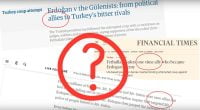Keyword: Hizmet (Gulen) movement

The Failed Military Coup In Turkey & The Mass Purges: A Civil Society Perspective
Both Turkish society and the world celebrated the fact that an anti-democratic intervention in the government was prevented. Turkish government has every right to pursue plotters within the law. The actions of President Erdogan’s government in the immediate aftermath of the coup, however, constitute a mass purge rather than a proper investigation.
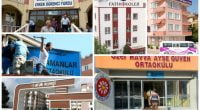
Minister: Turkish gov’t racks up $5 bln in confiscation of Gülen-linked properties
The value of immovable properties including dormitories, real estates and schools that the government has confiscated as part of its clampdown against Gülen movement so far, totals around TL 15 billion or $4.9 billion, according to Environment and Urban Planning Minister Mehmet Özhaseki.

Why Is Turkey Targeting Hizmet? Questions about Erdoğan’s Post-Coup Crackdown
In May 2009, I received an award at the International Turkish Olympiad. The event was sponsored and organized by members of the Hizmet movement and most of the performers were students of Hizmet schools abroad. When I, together with a handful of other recipients, mounted the stage to accept our awards, there to shake our hands was the smiling then prime minister of Turkey, Recep Tayyib Erdoğan.

Turkish citizens in Arkansas face uncertain futures
Director of the Peace Keeping and Human Rights Program at Columbia University David Phillips says surveillance is possibly going on here in the US, even in Arkansas. “There are widespread reports that Turkey’s national intelligence agency is recruiting informants in order to identify so-called Gulenists or opponents of the regime.”
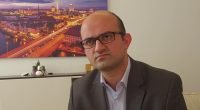
Erdogan’s critics in Germany living in fear of his long arm
When Ercan Karakoyun goes to a restaurant in Kreuzberg or Neukölln, Berlin’s boroughs with a large migrant population, he never sits with his back to the door. When he leaves, he looks left and right before exiting, to make sure no one is waiting for him. He also stopped visiting Turkish mosques, fearing an attack.

Turkish court: There is no Gulen terror organization
The 2nd Criminal Court in the southern province of Hatay rejected an indictment prepared about the Fethullah Gülen Terrorist Organization (FETÖ), a term used by the Turkish government to describe the Gülen movement, saying that there is no such a terrorist organization officially identified.
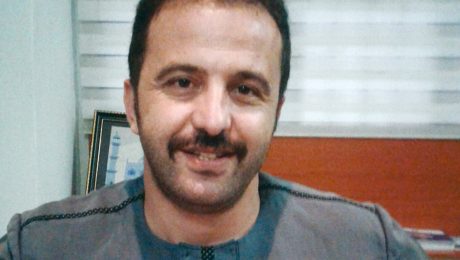
I came to Nigeria with just a piece of luggage –Turkish International Colleges foundation coordinator
When Behlul Basaran arrived Nigeria in 2000 from Turkey, he was armed with a single piece of luggage, an enthusiastic spirit and hope. Inside his luggage was his letter of scholarship for a university education from the Hizmet Movement, which had started building a relationship and foundation for quality education with Nigeria.

US prosecutor denies any links to Gülen, says never set foot in Turkey
Responding to allegations from Turkey’s President Recep Tayyip Erdoğan, who accused US Attorney for the Southern District of New York Preet Bharara of being a sympathizer of the faith-based Gülen movement, Bharara said he has just learned Turkish Islamic scholar Fethullah Gülen’s name from Google and has never been to Turkey.

They think we are terrorists, they think we are evil
Another woman, a former Turkish journalist before the government shut down papers that spoke out against it, said: “I feel like my voice has been taken. People don’t feel safe in London, even going shopping, because we don’t know what radicals will do.”
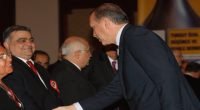
Turkish minister’s leaked email shows trustees to Gulen affliated organizations not appointed by courts
In the email Ahmet Özal says: “Definitely, trustees will be appointed to Turgut Özal University. … I think the esteemed president will also be happy if I cleanse Turgut Özal University [of Gülen sympathizers] and end the association between that community and my father’s name. I would be very pleased if you could convey this issue to the president [Erdogan] and help me get his support and approval.”
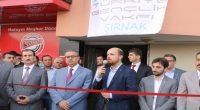
Turkish minister’s leaked emails show pro-gov’t figure has eye on Gülen-linked dormitory
Leaked emails of Turkey’s energy minister and son-in-law of President Recep Tayyip Erdoğan, Berat Albayrak, have revealed plans by a pro-government figure to assume ownership of a dormitory in Kayseri province that used to be operated by the Gülen movement but was closed down by the Justice and Development Party (AKP) government.

Turkey After the July Coup Attempt – Alan Makovsky’s testimony before Committee on Foreign Affairs
The vastness and persistence of the purge of the civil service, arrests of journalists, and closure of media outlets—many seemingly having nothing whatsoever to do with the exiled Turkish preacher Fethullah Gülen or his Gülenist movement that the Turkish government blames for the coup attempt.

